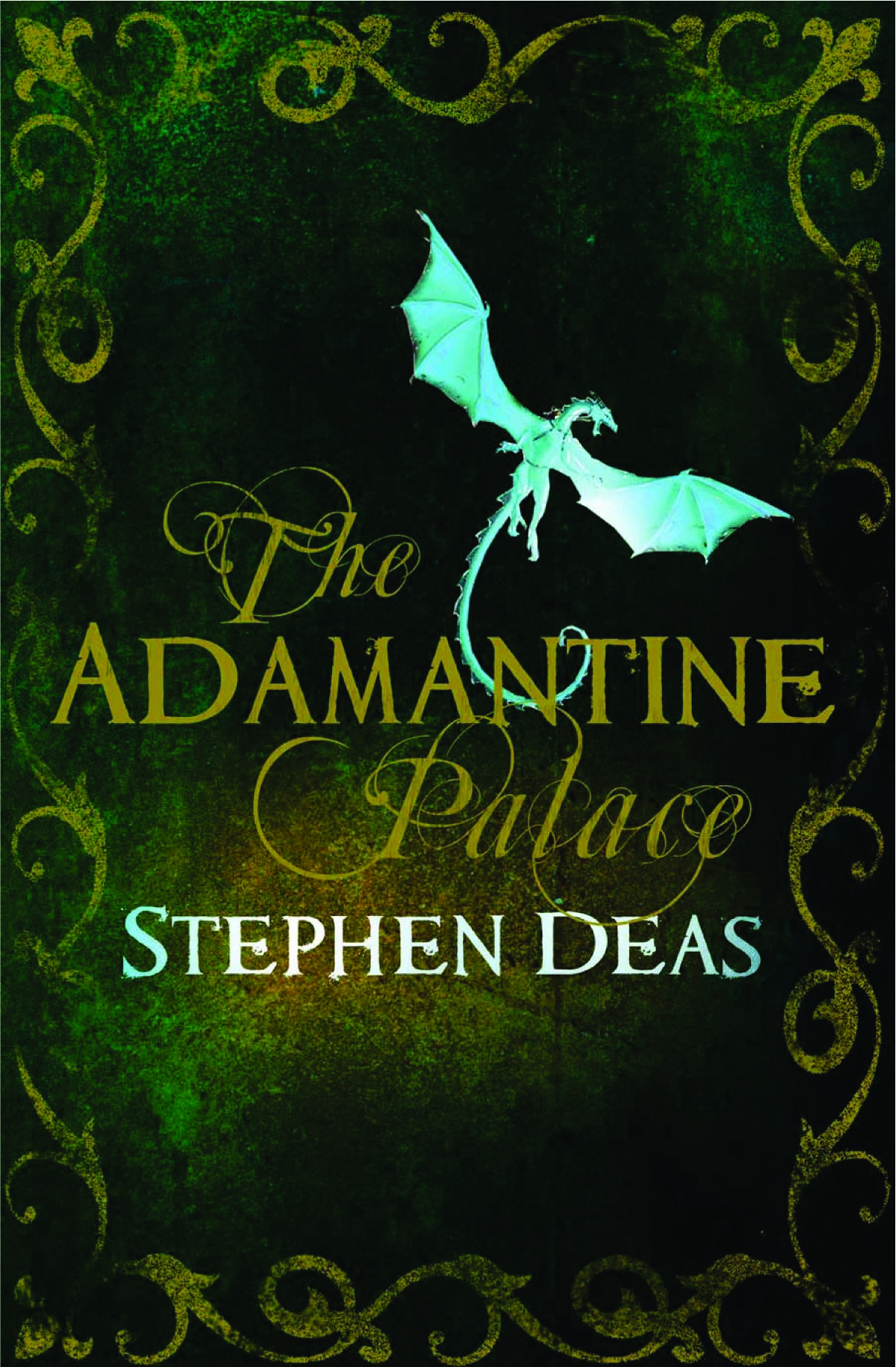I know, another post without complaining about how late
kickstarters are? That’s okay, October is right around the corner so I’ll tally
up the process and see how things are going by then. If its based on anything
like previous months, no change.
However, despite working six and seven days a week, I did
manage to read another book. I had honestly forgotten how much I enjoy reading
with all the beating my mind has taken at work and various dreaded ‘real life
issues!’. Its good sometimes to sit back and read a book.
The Adamantine Palace by Stephen Deas is a fun romp into
dragon territory. While TSR and then Wizards of the Coast has plowed the field
with many standards that fit into a dragon society with Dragonlance and of
course the revered grand dame of Science Fiction Anne Mccafre has Pern, Stephen
still manages to make it an interesting and fast paced book.
From what I know, there are already other books by Stephen
Deas in the series and if time and finances permit, I’ll be sure to hit them up
as time allows. I’ll be doing my usual rambles below and that includes spoilers
so if you want to avoid those, read no further.
One of the things I enjoyed about the Adamantine Palace, is
that the author, much like George R. R. Martin, Glen Cook, and a few others,
isn’t afraid to kill off, what to that point, had been main characters. It
provides the setting with a quick slap in the face and makes the reader a bit
unsure of the standing each character has. One of the problems with long
running campaigns, is that unless the Game Master is willing to smash his toys,
the players may feel like actors on a stage rather then adventurers in a deadly
setting.
Another thing I enjoyed is the role of the dragons
themselves. Like in some settings, they have their place for their role in
society, including hunting, war, sports, and status, they have a darker origin.
It seems, from the flashbacks, which are not complete yet, that the dragons
were the rulers and that mankind uses alchemist to subvert their minds and free
will so that they are slaves.
Yet strangely enough, it doesn’t take too much to knock one
out of that stupor. Indeed, it seems shockingly easy but no sane person would
want to do that. Initially I was highly skeptical of it. I thought, what
society would dare try to harness something that could turn on them so easily?
And then you look at the ‘real world’ and remember that during the first big
old bomb testing they were worried it was going to ignite the sky. But hey, test away right? That doesn’t count
reliance on nuclear power and the price Japan paid for that during their recent
issues or the myths that have grown up around Russia, mainly in the comics
about their own incident.
So in the end, harnessing a power that can turn against you?
Easily something man does all the time in both the real world and the of
fiction. I’ll be curious to see where Stepehn Deas takes the ideas that he
presents here as if one ‘accident’ involving a single dragon can cause so much
potential harm, what the final resolution of this harnessed power will be.
In a role playing game, most creatures that are above animal
intelligence will have their own motivations and means of working with or
against the characters. In the Forgotten Realms, many of the main races already
have their motivations lain out for them. For dragons, the elves use of making
the dragons go into a rage and destroying their ability to work magic on a
regular basis is what brought the elves into power while humanity’s numbers
brought them into power.
But what if you were staging a game during that time when
dragons ruled? What if instead of a temporary madness the initial plan was one
that made the dragons creatures of mindless rage at all times? Or that ‘star’
mages or another type of magic was used to control dragons?
For those looking for a book where the heroes are all slick
and happy, this is not the book for you. One of the main characters, Jehal, is
a master manipulator. He manages to play all sides and still comes across, at
least to me, as an interesting character. He has some internal conflict and
that’s enough to make you wonder where he’s going. His arrogance and pride make
him do things that put him in positions he may not be able to control, but that’s
part of the ‘charm’ of the character.
Others in the book range in their motivations and methodologies
but many of them have an overriding motive that makes them easy to identify
with or at least follow and that makes them good archetypes. The interesting thing to me though, is that
these goals and motivations are things that don’t necessarily fall into ‘alignment’
patterns that are familiar in games like Palladium and Dungeons and Dragons. If
you’re main goal is to advance your family, murdering off a rival that stands
in your way may not be good, but it is something that would be taken into consideration.
Personal happiness goes to the side when planning out not only your future, but
your family’s future, even if that means alliances that would normally be
taboo.






No comments:
Post a Comment